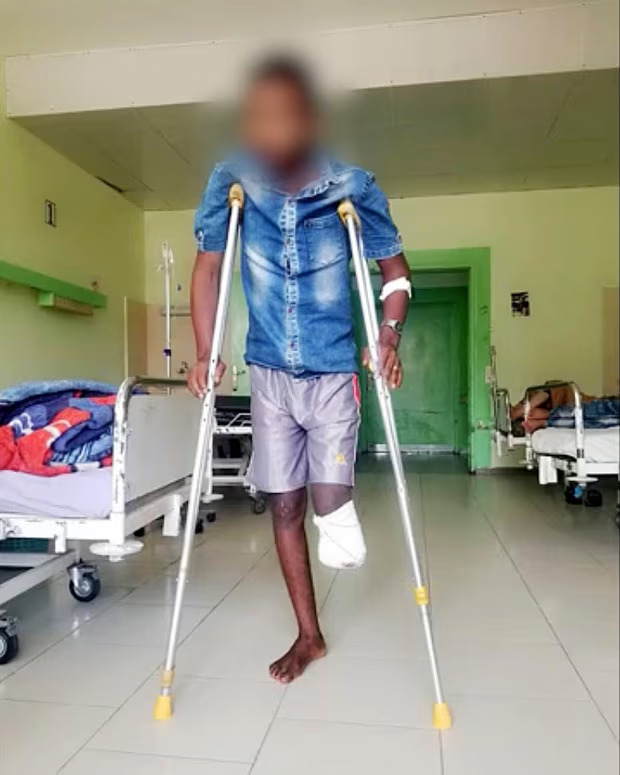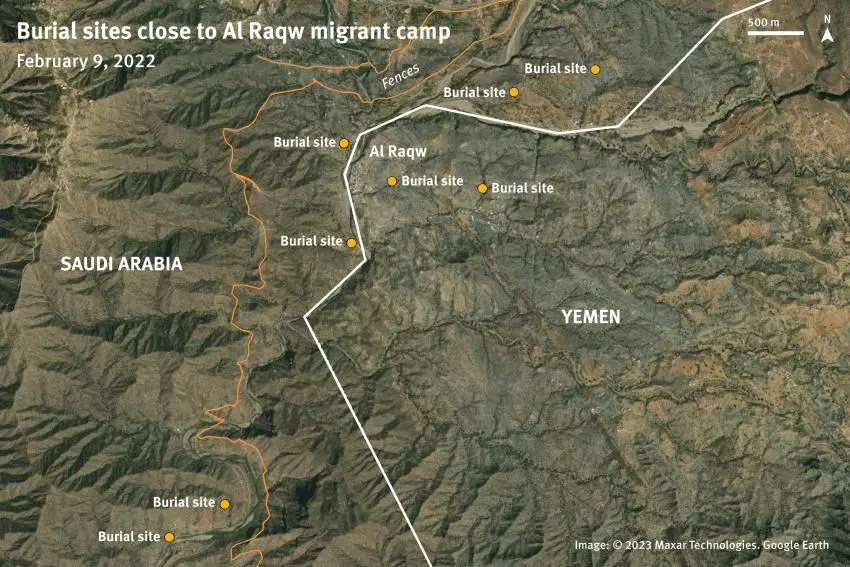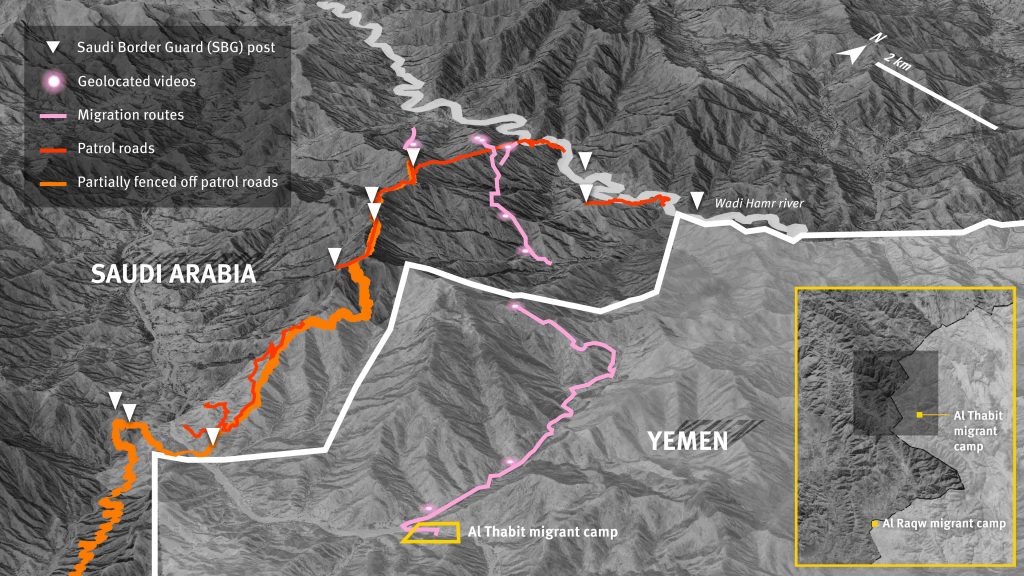In a shocking revelation that has sent shockwaves across the international community, Saudi border guards have been accused of committing heinous acts of violence against Ethiopian migrants. The accusations, detailed in a comprehensive investigation by Human Rights Watch (HRW), paint a grim picture of a targeted campaign that may amount to a crime against humanity. This article delves into the alarming claims, the evidence presented by HRW, and the implications for both Saudi Arabia and the global community.
The Allegations and Investigation
The allegations against Saudi border guards revolve around the killing of hundreds of Ethiopian migrants using small arms and explosive weapons. According to Human Rights Watch, these attacks were part of an escalating campaign of extreme violence targeting individuals attempting to cross the border into Saudi Arabia from Yemen. The investigation involved extensive research, including satellite imaging, photographs, survivor testimonies, and expert analysis of injuries sustained by survivors.
The Horrifying Evidence
The evidence presented by HRW is both compelling and deeply disturbing. Witness testimonies recount mass fatality events, with women and children falling victim to shelling and explosive attacks. Hamdiya, a 14-year-old girl who experienced the ordeal firsthand, shared, “I saw people killed in a way I have never imagined. I saw 30 killed people on the spot.” The use of explosive weapons, even against women and children, has shocked even experienced researchers like Nadia Hardman of HRW.


A Pattern of Systematic Violence
HRW’s report suggests that the violence carried out by Saudi border guards follows a disturbing pattern. The use of explosive weapons and close-range shootings, sometimes preceded by inhumane questioning of survivors about their preferred limb to be shot, points towards a widespread and systematic campaign. If proven to be part of a deliberate Saudi government policy, these acts could potentially constitute a crime against humanity.
International Response and Forensic Analysis
The international community has been quick to respond to these grave allegations. The Independent Forensic Expert Group (IFEG) of the International Rehabilitation Council for Torture Victims analyzed images of injuries sustained during the attacks. IFEG’s report indicates that the injuries align with both small arms fire and explosive weapons. The sheer scale of the killings, as estimated by witnesses, underscores the gravity of the situation.

Origins of the Victims and Alleged Incidents
The victims of these violent acts often set off from migrant camps near the Saudi-Yemen border, under the control of people smugglers and Houthi forces. The Al Thabit migrant camp and Al Raqw tented encampment have served as departure points for these ill-fated journeys. One harrowing incident, alleged to have occurred in early June, involved the firing of explosive weapons at a group of recently released detainees who were preparing to return to Yemen. The survivors vividly describe the chaos and devastation that followed.


Implications and Conclusion
The allegations against Saudi border guards raise significant ethical, moral, and legal concerns. As the evidence presented by HRW continues to mount, the international community is faced with a crucial decision on how to respond to these grave human rights violations. The upcoming visit of Saudi Arabia’s crown prince Mohammed bin Salman to London adds another layer of complexity to the situation. It is imperative that accountability is sought, and justice is pursued for the victims and their families.

